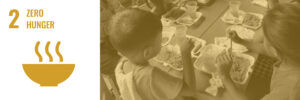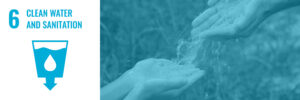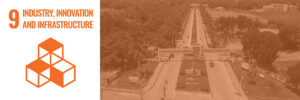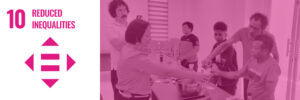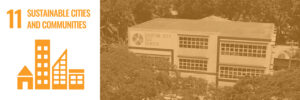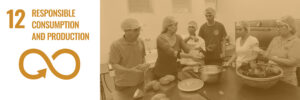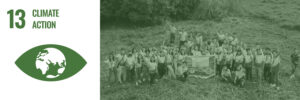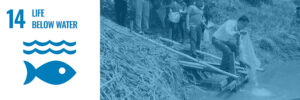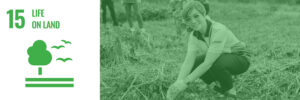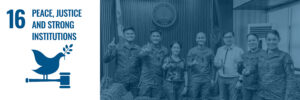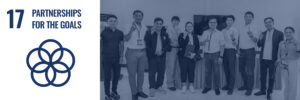2023 – Reports | SDG 15 – Life on Land

Balik Scientist Vet Expert gets assigned at ISU, brings embryo tech for CV Goats
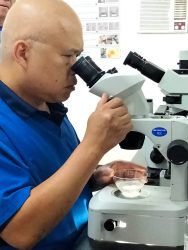
The Isabela State University through the Cagayan Valley Small Ruminants Research Center took another step in R&D to continuously bring quality animal genetics in the countryside.
With the support from the DOST Balik Scientist Program and DOST-PCAARRD, an expert on embryo transfer from Australia is currently conducting a training to capacitate local researchers on this particular artificial breeding technique. With embryo transfer, we can both maximize the superiority of male and female animal breeders and improve the rate of genetic improvement.
The DOST-BSP Expert is Dr. Miguel Mervin Pajate, a veterinarian and an embryologist. At present, he works with commercial breeder farms of small ruminant in Australia in terms of artificial breeding services. His engagement with ISU aims to apply the same technique in the Philippines by developing a protocol suitable to the Philippines condition.
The local researchers who will be trained under the supervision of Dr Pajate is expected to learn and develop skills on embryo flushing, embryo grading, cryopreservation and embryo transfer.
The team is composed of veterinarians from the ISU- School of Veterinary Medicine (SVM), researchers and laboratory technicians from ISU- College of Agriculture (CA) and CVSRRC, and Quirino State University (QSU).
Aside from these skills, the team is also expected to understand the importance of animal selection, nutrition management and recording as these factors will have play an important role to attain a high success rate.
Joining the team are representatives from the National Dairy Authority- North Luzon, which is considered as a partner agency when the technology is being promoted and applied in the communities.
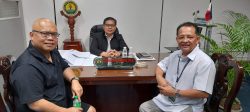
This initiative is led by Dr. Jonathan N. Nayga, the Dean of ISU-CA and the Director of ISU-CVSRRC.
After Artificial Insemination, here comes Embryo Transfer | ISU Small Ruminants Center introduces breakthrough technology on Embryo Transfer for Goats
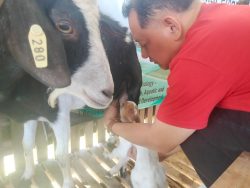
Livestock sector is one of the priority fields of Isabela State University’s Research & Extension thrust. Through the years, the university continuously provides new options to facilitate the upgrading of stocks under the supervision of Cagayan Valley Small Ruminants Research Center using artificial breeding technologies.
Since 2009, the center started to develop protocols on artificial insemination (AI) for small ruminant. With AI, the superiority of the male breeder is maximized, allowing faster upgrading of stocks.
In 2017, with the completion of the laboratory and other support facilities, the university, under the new leadership of Dr. Ricmar P. Aquino proposed to explore the possibility of embryo transfer technology application. Embryo transfer or ET is a technique where embryos are collected from a superior donor female and transferred to a recipient or surrogate dam to carry the pregnancy. With the technology, purebred animals can be delivered using small number of superior breeders.
The ET activity at ISU-CVSRRC is a project of DOST Balik Scientist Program (BSP) under DOST-PCAARRD support. Earlier this year, Dr. Miguel Mervin Pajate, a veterinarian and ET expert who is currently residing in Dubbo, Australia was tapped to serve as the expert to train ISU researchers on the technology.
Led by Dr. Jonathan N. Nayga, the team was trained on selection and preparation of donor and recipient does, superovulation of embryo donors and synchronization of recipient does, and embryo collection, grading, storage, and thawing.
On January 27, 2023, an upgraded doe became a recipient of an embryo produced from purebred Boer buck and 75% upgraded doe. Known as surrogate doe, the animal is native goat raised in one of the goat’s farms in Echague, Isabela. After five months, the surrogate doe delivered a male kid that weighs 1.5 kg.
This new development demonstrated the feasibility of ET application using the facilities of the university. At present, farms under CVSRRC’s supervision are organized to test the local protocol developed from the engagement of the BSP Expert.
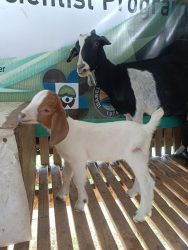
Educational programmes on ecosystems for local or national communities
The University is offering Bachelor of Science in Forestry (BSF), Bachelor of Science in Environmental Science (BSES), Bachelor of Science in Agriculture (BSA), and other related programs that addresses concerns on local or national ecosystems. These various curricular programs have been offered in the University supported by the approval of ISU Board of Regents and the issuance of Certificate of Program Compliance (COPC) by the Commission on Higher Education (CHED) in the Philippines. Aside from these academic programs, several research and extension activities were conducted in relation to sustainable management of land for agriculture, natural resources and tourism.
ISU Cabagan Campus as a Wildlife Sanctuary
ISU Cabagan campus was declared as a wildlife sanctuary due to the unique ecosystem landscape over the campus which harbors dense vegetation cover that serve as a habitat of various fauna that are strictly protected.
The University management identified the niche of every campus. Relative to the conservation, restoration and sustainable use of terrestrial ecosystems particularly on forests, mountains and drylands, the Isabela State University-College of Forestry and Environmental Management (ISU-CFEM) of Cabagan campus spearheaded these activities while the other campuses are also doing their respective roles. In addition, some research centers like the Cagayan valley Program on environment and Development (CVPED), Upland Resource Center (URDC), etc. were crafted to address these issues. CVPED started in 1988 with strong collaboration and partnership between ISU-CFEM and Leiden University, Netherlands. Dutch students went to ISU-CFEM to conduct their research for the completion of their respective MS and PhD degree programs towards the sustainable conservation and management of the Northern Sierra Madre Mountain range.

Monitoring of IUCN and Other Conservation Species (Policies)
Responsive to the promotion of species conservation, ISU Cabagan Campus was declared as a wildlife sanctuary due to the unique ecosystem landscape over the campus which harbors dense vegetation cover that serves as a habitat of various fauna that are strictly protected.
Land sensitive waste disposal
ISU Cabagan Campus has an approved Environmental Management Code (EMC). The objectives of the EMC are the following: (1) Initiate and nurture the value of environmental sustainability among students, faculty and staff, including private residents within the campus; (2) Contain and manage campus wastes generated within its premises, practice reduce, re-use and re-cycling of waste and residuals be disposed ecologically; (3) Have a healthy working environment by strict implementation of the no smoking, no burning, no littering, no urinating elsewhere, and no beetle nut spitting policies in the campus; and (4) Establish a model sustainable environmental management program in the province.
Responsive to the concerns related to solid waste management, the University has actively focused on the development and compliance with such policies and regulations, thereby supporting the mandate of the national government stipulated in Article II, Section 16 of the Philippine Constitution which states that “The State shall protect and advance the right of the people to a balanced and healthful ecology in accord with the rhythm and harmony of nature.”
Moreover, the University is always committed to securing its local populace from the threats that solid waste mismanagement could bring and create a healthy and safe environment for its constituents. As a result, the University crafted a five-year plan integrating strict adherence to the aforementioned mandate and/or in accordance with the national and even local laws particularly RA 9003. With a steadfast commitment to environmental sustainability, the University will rigorously enforce the implementation of Environmental Solid Waste Management (ESWM) practices. By doing so, it aspires to create an idyllic living environment, entirely devoid of pollution.
ISU Cabagan Campus has an approved Ecological Solid Waste Management Plan (ESWMP). At present, the existing management scheme on solid wastes in Isabela State University Cabagan (ISUC) Campus is not yet fully established. The existing solid waste management initiatives of the campus are discussed in this plan. However, there are constraints in its implementation and the operations that are taking place in the campus.
To this end, ISUC has directed its attention at complying into policies and/or regulations about the concerns on solid wastes. This is to secure its local populace from the menace that the problem on solid wastes could bring forth. Moreover, this is in support to the mandate of the government as stipulated in Article II, Section 16, of the Philippine Constitution which states that “The State shall protect and advance the right of the people to a balanced and healthful ecology in accord with the rhythm and harmony of nature.”
In so doing, ISUC, with its aim at providing a healthy and safe environment for its constituents, responded and took the challenge of crafting this 5-year plan that shall serve as a guide in strictly adhering to the mandates in accordance with the national (and even local) laws particularly RA 9003. This will ensure that ESWM will be implemented in the Campus so that it will become an ideal place to live in that is free from any source of pollution.
The Isabela State University–Cabagan Campus asserts exclusive copyright over its methodically crafted Ecological Solid Waste Management (ESWM) Overall Framework. Essentially, this comprehensive Ecological Solid Waste Management Program intends to satisfy the requirements set forth by existing laws and to ensure that proper solid waste management is extensively practiced. Specifically, ISU – Cabagan Campus Solid Waste Management Program has five pillars, namely: scientific studies; institutional policies and platforms; centralized materials recovery facility; production of innovative products; and patent, publication, marketing, and extension.




